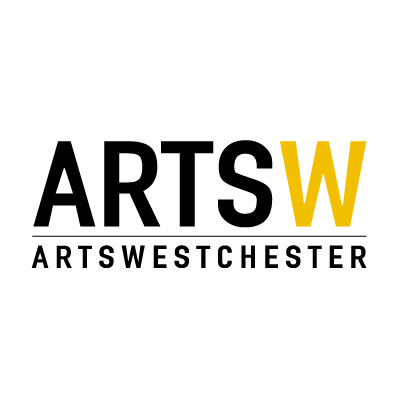Irvington Juneteenth: An Interview with Kelli Sherelle Scott
Interview with Kelli Sherelle Scott, Founder of Irvington Juneteenth, Chef Activist and Food Story Teller.
Aaron Paige (AP): Juneteenth in Irvington is one of the more recent celebrations of Juneteenth in Westchester County. How did Irvington’s Juneteenth together last year ?
Kelli Sherelle Scott (KS): Last year we were going through two pandemics at the same time…when the racial climate in America had flipped upside down because of George Floyd, Breonna Taylor and those senseless killings. We really felt like it was important to continue the conversation around social justice. At that time, Irvington had had two rallies. But we needed to do even more. Juneteeth was always important to me as a kid, growing up in Louisiana. It was always an ongoing celebration every year and realizing that we didn’t have anything here… I had wanted t do a program around food for Juneteenth, where I would explain the story behind the food and culture, as well as the concept and the metaphor of a table and why it is important. But I quickly realized last year, that we needed to do so much more. So we took the responsibility of Juneteenth as an educational moment…to educate those that previously had not known what Juneteenth was. People had a lot of questions like “what is Juneteenth?” Many people literally didn’t know what Juneteenth was. So in the middle of the pandemic, we brought in a stage and a band and some good food and art and we were able to expose Irvington, Dobbs, Tarrytown and other river towns. It was important for us to make sure that expression was known in the river towns.
AP: As a chef and food justice activist, how do you connect food and Juneteenth?
KS: Last year, I took the opportunity to tell a unique story of the Gullah Geechee people based out of the Carolinas and Georgia. The Gullah and Geechee history is a one that must be preserved. It is one of the oldest African histories that is still alive and intact in the United States. It wasn’t until about 50 years ago that they actually had access to the mainland. And so the language is still intact and most of the food and the cultures are still intact. The whole reason that those people are there is because of rice. They were stolen from the Angola region of Africa, for the sole purpose of rice engineering here in America. It’s really an important story that must be told. So why do we have the food that we have, and where did it come from? The story is much deeper than just us eating. Blood, sweat, and tears went into the rice that you eat with your meals…literally blood, sweat, and tears. These people were left in the middle of islands and if they tried to get away they would drown. To think of that story and realize that my Louisiana culture is tied to that story…it was important for me to tell it.
For Juneteenth, it was important that we partner with local restaurants and also offer Juneteenth specials. This is important to bring business into our local economy. This year we’re partnering with MP Taverna. Chef Michael has gladly agreed to have a Juneteenth special. I’m really excited about that. MP Taverna is one of our biggest restaurants in Irvington and for them to be on board with us… it’s a great honor. Cravin’ will also be with us again this year. They are based out of Ossining. They will have all the Jamaican feels. Foods tell a story, right? Even oxtails for example. Nowadays, they cost a ridiculous price per pound. But we have that dishtoday because that’s what the enslaved were given. We were given the end pieces. We were given the pieces that they didn’t want. And now look at it. Those same pieces that they didn’t want are making money. Today, you can go to a fine dining restaurant and find oxtails, and you’ll find feijoada, which is basically a bean dish that every slave would have eaten because it was the ears and the tails of the pig. And now we find these foods on fine-dining menus. But those dishes are really rooted in a dark time in our history and our past. Even if you think about some of the stuff that we really love such as Osso Bucco. Those shanks were not the meals of the privileged. They were the meals of the peasants. There is a larger picture of justice there that portrays itself. Any type of expression of art at Juneteenth, whether it be food, painting, or jewelry, it has a bigger story and it connects us to a deeper place.
AP: As someone who grew up celebrating Juneteenth, what does it mean to you personally?
KS: For me, Juneteenth has always been about the overall expression of the Black culture. It was a time when that culture wasn’t judged or condemned. It was a time that you could be free in your skin. Everyone was there doing cultural dancing. No one asked ‘Why are you guys doing that?’ Those questions were not raised. Juneteenth was a place to be free. It was always about the food, the music, the artwork. All that we’ve embraced this last year and a half, really was the culture of Juneteenth. Like buying Black for example. Growing up, we’d have a bunch of Black vendors that would always come out. And we were able to support artists that were never seen. Not only that. In Louisiana, Juneteenth was about hearing from older people. There was always a lesson and it was always educational. We heard from those who were there before desegregation. The most important thing was to understand our history and how to move forward to a brighter future. Just being comfortable in your own skin. It was a place of safety. That was the one day that you didn’t care about what color you were. You wasn’t trying to fix your tone of voice. You wasn’t trying to fix your hair in certain ways, so people would accept you. I could be me and they wouldn’t question it. You could talk in broken English and it was okay.
AP: What is the plan for Juneteenth in Irvington this year?
KS: Last year, it was just two of us planning the whole thing. This year it’s a whole committee. It’s really crazy to see everybody’s involvement and people excited about it in the community, especially when considering that man people last year didn’t know anything about Juneteenth.
One of the biggest successes that we had last year was our panel discussion. The panel led to about six months of work after Juneteenth, where our mayor and myself continued those conversations. We called it Table Divided. During the panel, we asked a lot of hard questions and they were not easy questions to answer. It was a diverse group of people. The feedback we got was overwhelming. We knew at that point that we couldn’t stop there. The panel discussion will be back this year. That is something I’m very excited about. We’ll also have music. This year we are featuring Nkumu Katalay and The Life Long Band Project. I’m also excited that we will have a Senator and Congressman joining us.

About ArtsWestchester
For more than 50 years, ArtsWestchester has been the community’s connection to the arts. Founded in 1965, it is the largest, private, not-for-profit arts council in New York State. Its mission is to provide leadership, vision, and support, to ensure the availability, accessibility, and diversity of the arts. ArtsWestchester provides programs and services that enrich the lives of everyone in Westchester County. ArtsWestchester helps fund concerts, exhibitions and plays through grants; brings artists into schools and community centers; advocates for the arts; and builds audiences through diverse marketing initiatives. In 1998, ArtsWestchester purchased the nine-story neo-classical bank building at 31 Mamaroneck Avenue which has since been transformed into a multi-use resource for artists, cultural organizations, and the community. A two-story gallery is located on the first floor of ArtsWestchester’s historic building on Mamaroneck Avenue.
For more than 50 years, ArtsWestchester has been the community’s connection to the arts. Founded in 1965, it is the largest, private, not-for-profit arts council in New York State. Its mission is to provide leadership, vision, and support, to ensure the availability, accessibility, and diversity of the arts. ArtsWestchester provides programs and services that enrich the lives of everyone in Westchester County. ArtsWestchester helps fund concerts, exhibitions and plays through grants; brings artists into schools and community centers; advocates for the arts; and builds audiences through diverse marketing initiatives. In 1998, ArtsWestchester purchased the nine-story neo-classical bank building at 31 Mamaroneck Avenue which has since been transformed into a multi-use resource for artists, cultural organizations, and the community. A two-story gallery is located on the first floor of ArtsWestchester’s historic building on Mamaroneck Avenue.
